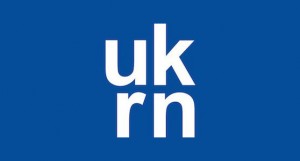As we start to think about how we respond to the
longer-term financial impacts of Covid-19, and linked
to that how we can best ensure that essential services
such as water, telecoms and energy are affordable for
citizens in the future, Sustainability First challenges us not
to fall into the trap of ‘group think’ and ‘collective failure of imagination’ when it comes to exploring the potential scenarios, options
and the solutions. 
Category Archives: Communications
Moving Forward Together on Consumer Experience
UKRN, with the FCA, Ofcom, Ofgem, Ofwat and CCWater, have worked together to develop a set of performance scorecards to measure the customer experience across key sectors. You can now access the scorecards for financial services, communications, energy, and water in one place – with consumer metrics covering service quality, price differentials and satisfaction levels.
Stepchange publishes new data on personal and household debt

StepChange Debt Charity’s latest statistics reveal that demand for debt advice is at its highest ever, with many clients struggling to pay bills for essential services, especially younger and vulnerable consumers.
What would really help consumers of essential services?
The report of the ESAN Conference 2018 with conference slides and videos of the presentations where available have now been published. Thank you to everyone who attended and special thanks for the BT team who hosted the event. Please continue to share your thoughts of what would really help consumers of essential services on #ESANdebate.

#esanevent stimulates debate on consumer voice
On Wednesday 2 November, 18 speakers and 92 delegates came together at the iconic BT Tower for the ESAN Conference: How can the consumer voice be better heard in the regulation of essential services? “Fantastic speakers, great content, excellently chaired” #esanevent

Making Digital Communications Work for Everyone
 On 25 February 2016, Ofcom published its initial conclusions following the review of digital communications. In brief:
On 25 February 2016, Ofcom published its initial conclusions following the review of digital communications. In brief:
- BT must open up its network, so competitors can connect fibre to homes and offices.
- Openreach must be reformed to better serve UK consumers and businesses.
- Quality of service for all customers must improve, with automatic compensation where things go wrong.
Ofcom will work with the Government to deliver a new universal right to fast, affordable broadband for every household and business in the UK.
UKRN launches leaflet for vulnerable consumers seeking support services
 The UK Regulators’ Network has today launched an advisory leaflet to help ensure vulnerable consumers get the help they need to access essential services.
The UK Regulators’ Network has today launched an advisory leaflet to help ensure vulnerable consumers get the help they need to access essential services.
Produced through a collaborative effort between Ofgem, Ofcom, Ofwat, the ORR and the CAA, the leaflet highlights a range of free support services offered by utility, telecommunications and public transport providers.
The UKRN website gives details of how to get braille, audio and large print versions of the leaflet.
Consumers International publishes agenda for fair mobile services
 On 12th March Consumers International (CI) published its Consumer Agenda for Fair Mobile Services ahead of World Consumer Rights Day (WCRD) on Saturday 15 March.
On 12th March Consumers International (CI) published its Consumer Agenda for Fair Mobile Services ahead of World Consumer Rights Day (WCRD) on Saturday 15 March.
In the run up to 15 March, consumer groups will be making one big call on mobile phone service providers to demand better services for the 7 billion mobile users across the globe.
Mobile rip offs are commonplace – from holidaymakers being stung by four figure roaming bills abroad, to customers tricked into paying to receive text messages. With smartphones set to function as a remote control for more and more aspects of our lives, consumer groups believe now is the time to ensure big mobile companies are held to account for unfair, substandard services.
CI’s demands
In consultation with consumer groups around the world, CI has drawn up a Consumer Agenda for Fair Mobile Services, which outlines what the consumer rights movement wants to see changed. This includes demands that telecom companies:
•provide consumers with access to an affordable, reliable service
•provide consumers with fair contracts explained in clear, complete and accessible language
•provide consumers with fair and transparent billing
•provide consumers with security and power over their own information, and
•listen and respond to consumer complaints.
Read more from CI here.
CF launches “Next generation intermediaries”
 Low levels of consumer switching characterise many essential services markets (think current accounts or energy suppliers) and mean that competition alone isn’t sufficient to drive improvements. Two new reports from Consumer Futures have tackled this issue head on, introducing the concept of a new form of intermediary.
Low levels of consumer switching characterise many essential services markets (think current accounts or energy suppliers) and mean that competition alone isn’t sufficient to drive improvements. Two new reports from Consumer Futures have tackled this issue head on, introducing the concept of a new form of intermediary.
Next Generation Intermediaries (NGIs) are services that enable consumers to get better outcomes from complex markets by doing very little themselves – effectively outsourcing engagement to a new kind of intermediary service that works on their behalf. They would empower any consumer who lacks the time or inclination to trawl around for a better energy, financial services, or mobile phone package to instruct the intermediary find the offer that best meets the consumer’s declared criteria, and then to instigate and oversee the switch for them.
Let’s call it ‘do it for me’. It envisages a world where any consumer who lacks the time or inclination to trawl around for a better energy, financial services, or mobile phone package can instruct a new kind of intermediary service to ‘do it for me’. What’s more, once that service identifies the offer that best meets a consumer’s declared criteria, the consumer can again say ‘do it for me’ and have the service instigate and oversee the switch to the provider of that offer. And the consumer can then keep saying ‘do it for me’ in relation to related services that require decision support.
This paper provides an overview of the Next Generation Intermediary (NGI) concept – outlining the potential that NGI type services offer and the qualities that set them apart from established intermediary services. It provides an overview of how NGIs would work in practice, the technological trends that make this kind of approach possible now, and some thoughts on who might come to offer NGI services.
New ‘Easy Read’ mobile phone guide for people with learning disabilities
 Ofcom has published a guide which offers advice to people with learning difficulties on how to get the most out of their mobile phone and on how much it could cost. It gives information on:
Ofcom has published a guide which offers advice to people with learning difficulties on how to get the most out of their mobile phone and on how much it could cost. It gives information on:
- the different types of mobile phone handsets available;
- the costs of mobile phone calls and ways to pay;
- free services available for disabled customers; and
- how to complain when things go wrong.
It’s available from Ofcom’s website here, and will be distributed by organisations including Mencap and the National Autistic Society.
.